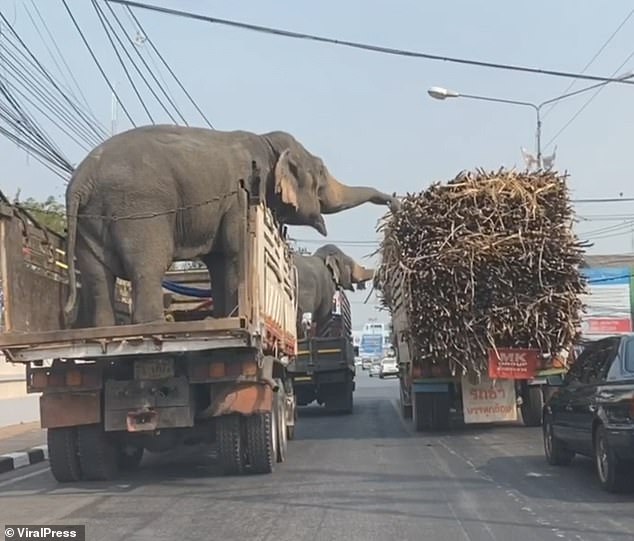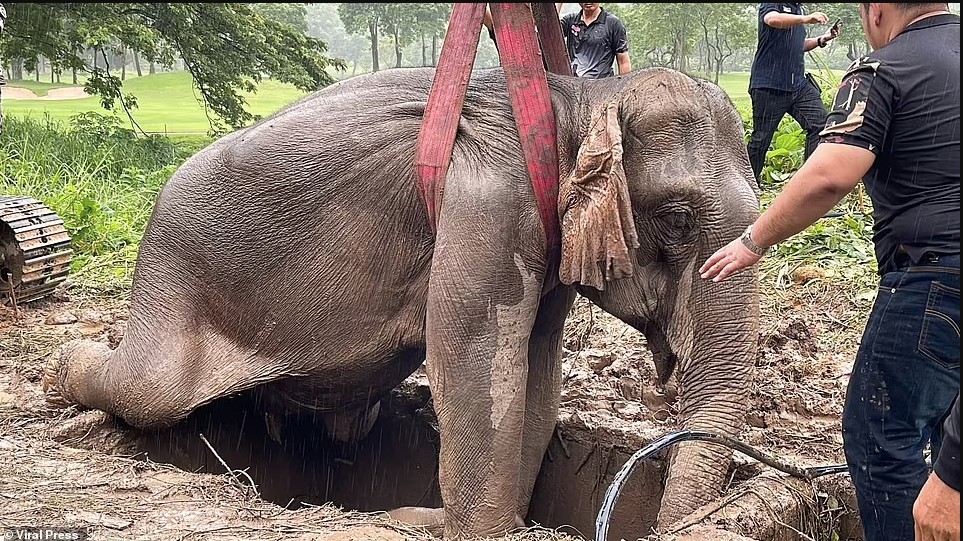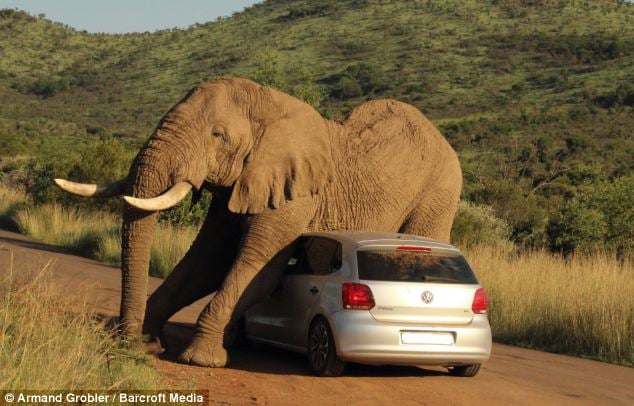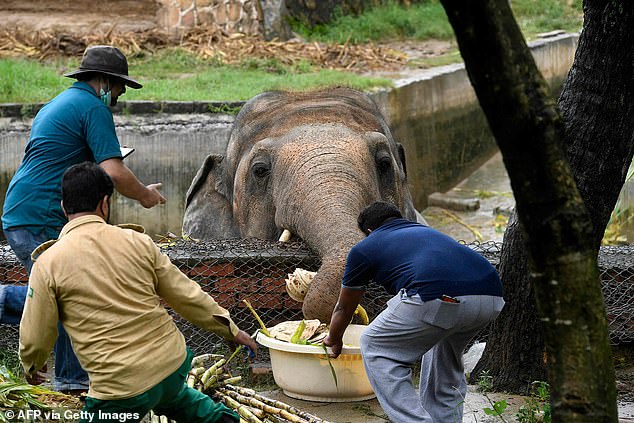Baby elephant suddenly starts eating his mother’s dung
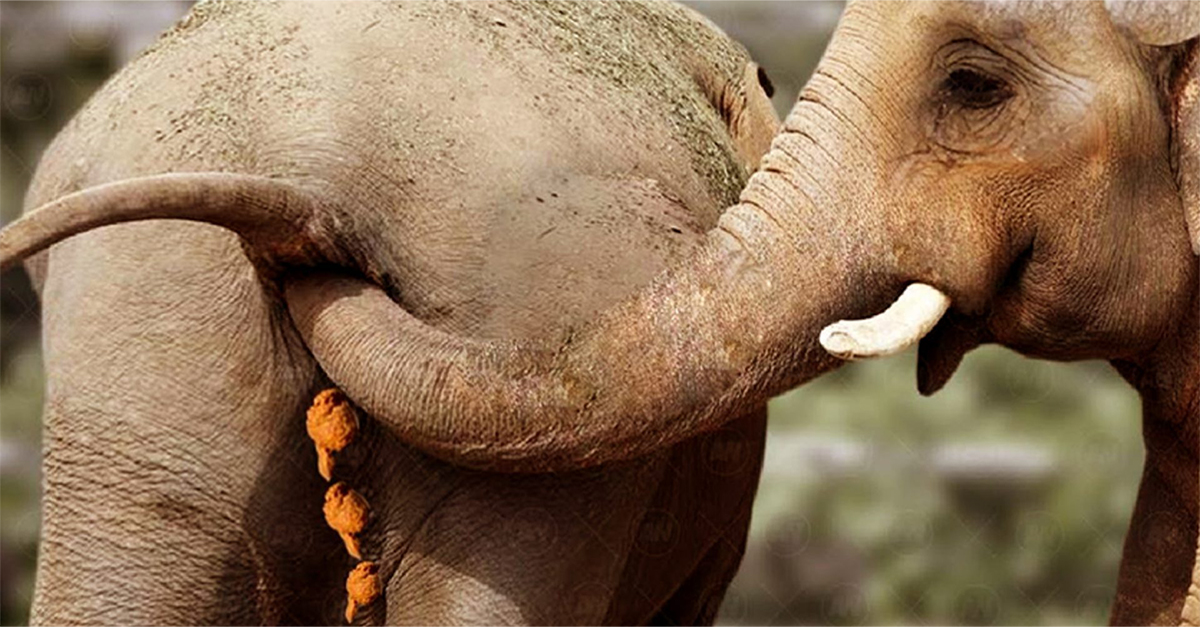
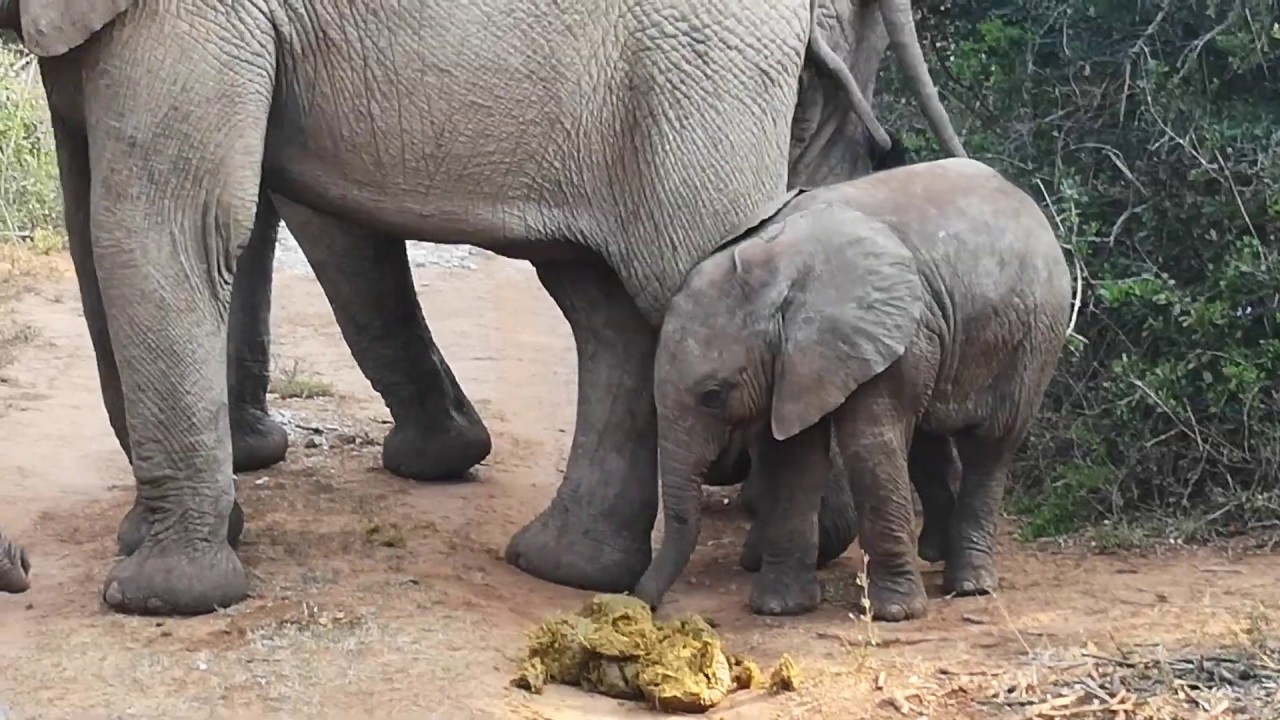
One particular baby elephant grabbed attention with his odd behaviour. This particular little elephant strangely looked interested in a pile of dung lying on the ground. The pile of dung belonged to his mother. The baby elephant goes down on his knees, moves his trunk to the side and takes a big bite of the dung with his mouth. After the big bite of dung, the little one continues to sniff around the pile of dung and picks up a smaller piece and puts it in his mouth. In the end the baby elephant picks up a stick and puts it in his mouth. It looked like he was trying to get rid of the taste in his mouth and that he just needed a toothpick after his strange meal.
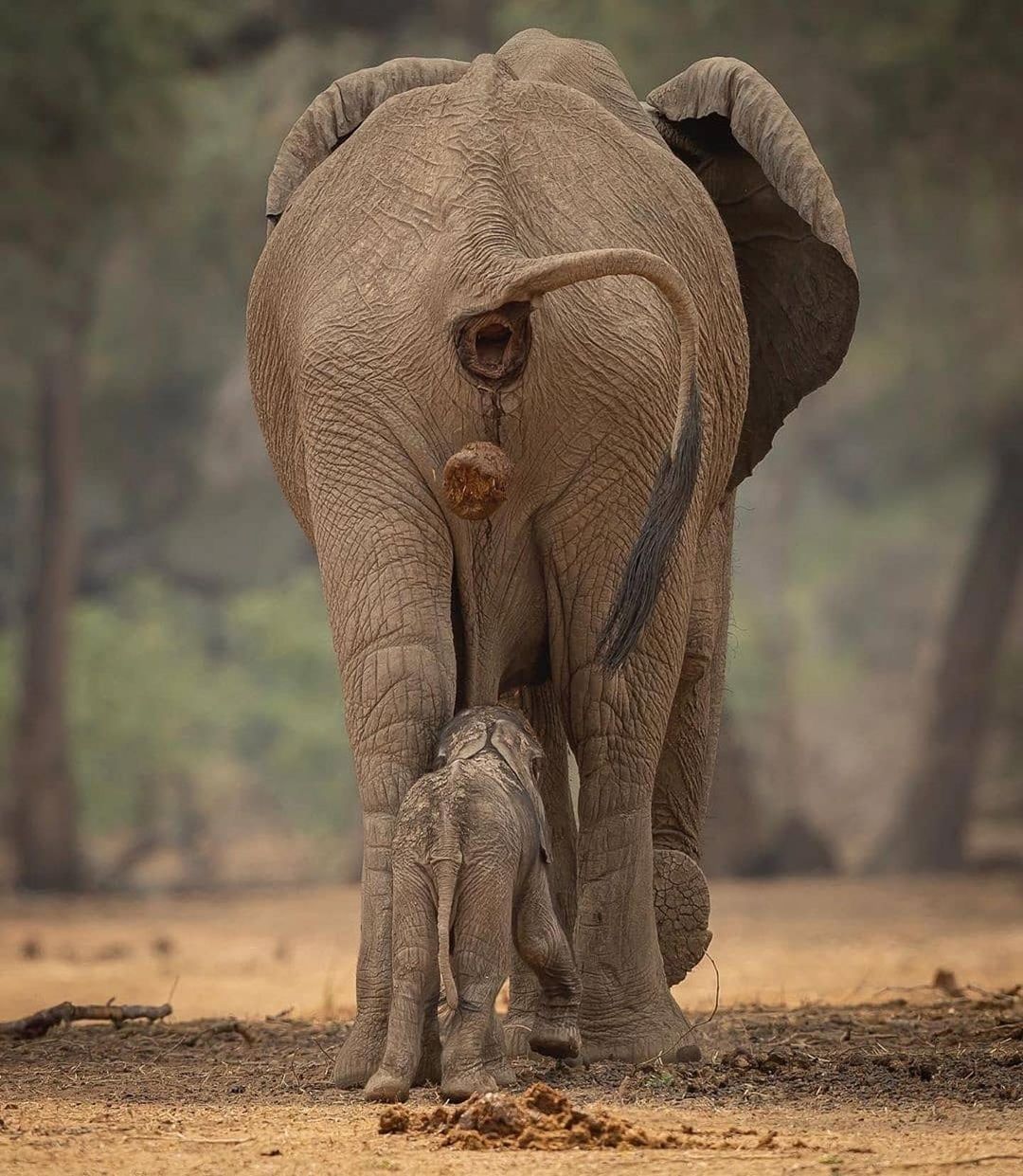
Why does a baby elephant eat poo?
It may appear disgusting to humans, but the practice of eating dung, known as coprophagia, is common among some animal species but rarely witnessed by humans in the wild. In fact, eating poo is vital for the survival and wellbeing of many young animals including elephants, rhinos, hippos and warthogs.

Elephants are hind gut fermenters. This means that once the food has passed through their stomachs and into their small intestines it enters the large intestine where bacteria causes fermentation to helps break down the grass and plant material.
Baby elephants are not born with the necessary bacteria in their gut to allow them to digest plant matter. The only way that the baby elephant can obtain the much-needed digestive bacteria is to consume the faeces of his/her mother or fellow herd members. They doing this during the transitioning stage when they begin to eat plant materials while still feeding on milk.
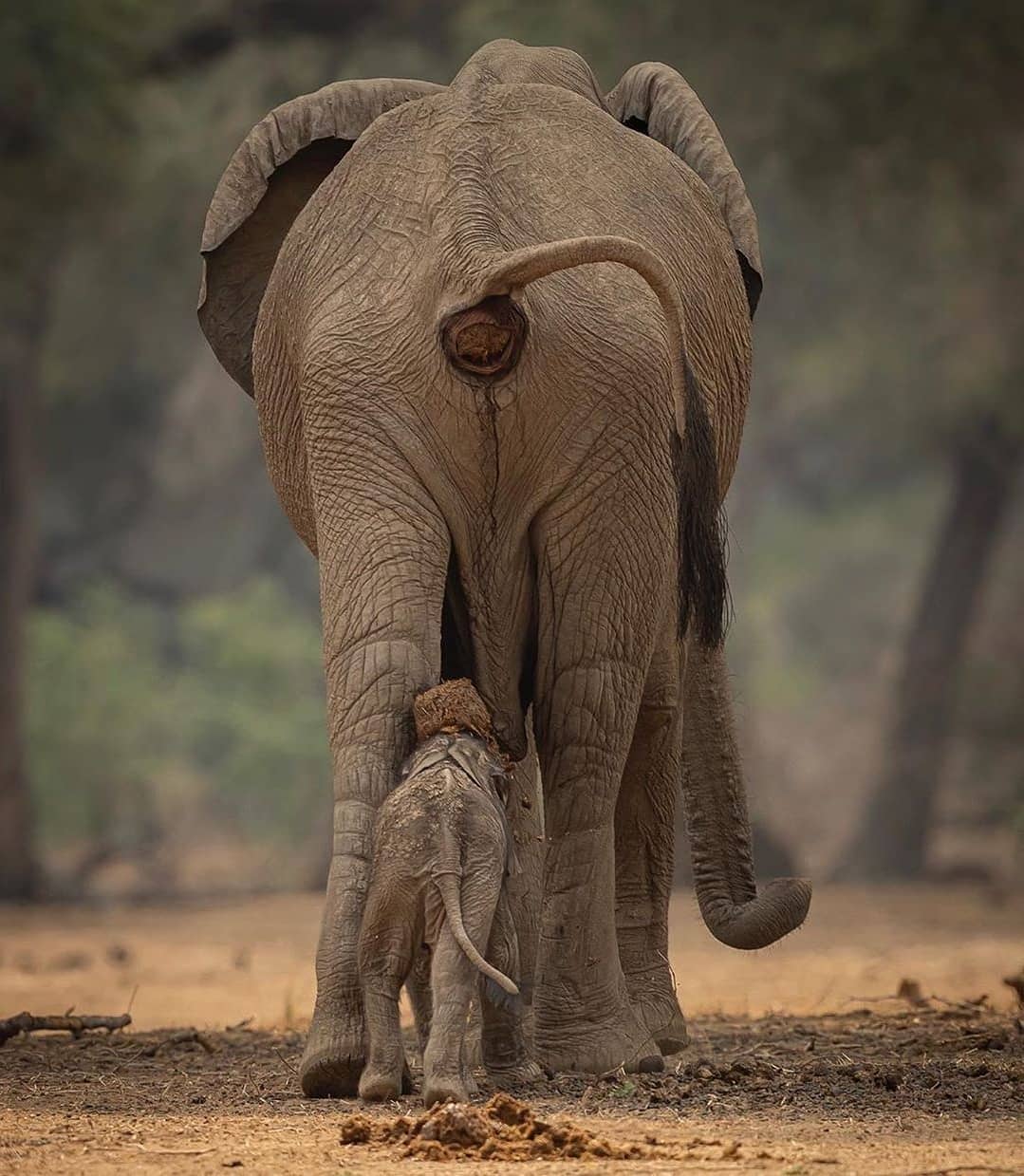
Elephant faeces is composed of 75% water. The remaining 25% is made up of (in approximately equal parts) indigestible fibres that help the faeces through the digestive system, dead bacteria and also salts, dead cells, mucus and live bacteria. This live bacteria are what the baby elephants need to build up their own digestive systems as well as strengthen their immune systems.
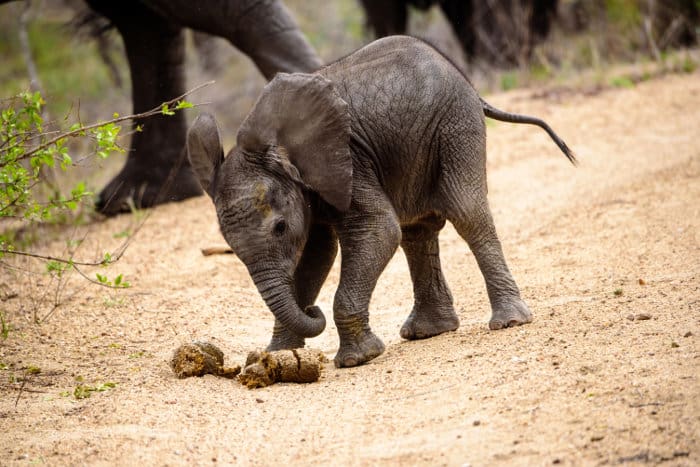
Many African Wild Animals Eat Poo
Many other African wild animals also eat poo. This is known as coprophagia. Faeces contains high levels of minerals and salt needed by the animal.
Hyena scat is very high in calcium as hyena consume bones as part of their diet. Leopard tortoises will eat the hyena scat to get the calcium to strengthen their eggs and also harden their own shells.
Rabbits and hares also eat their own faeces, sometimes directly from their own rectum, as their digestive systems are so fast that they doesn’t allow the animals to obtain enough nutrients from the food the first time. They have adapted to eating there faeces in order to get the required nutrients that they weren’t able to absorb the first time.
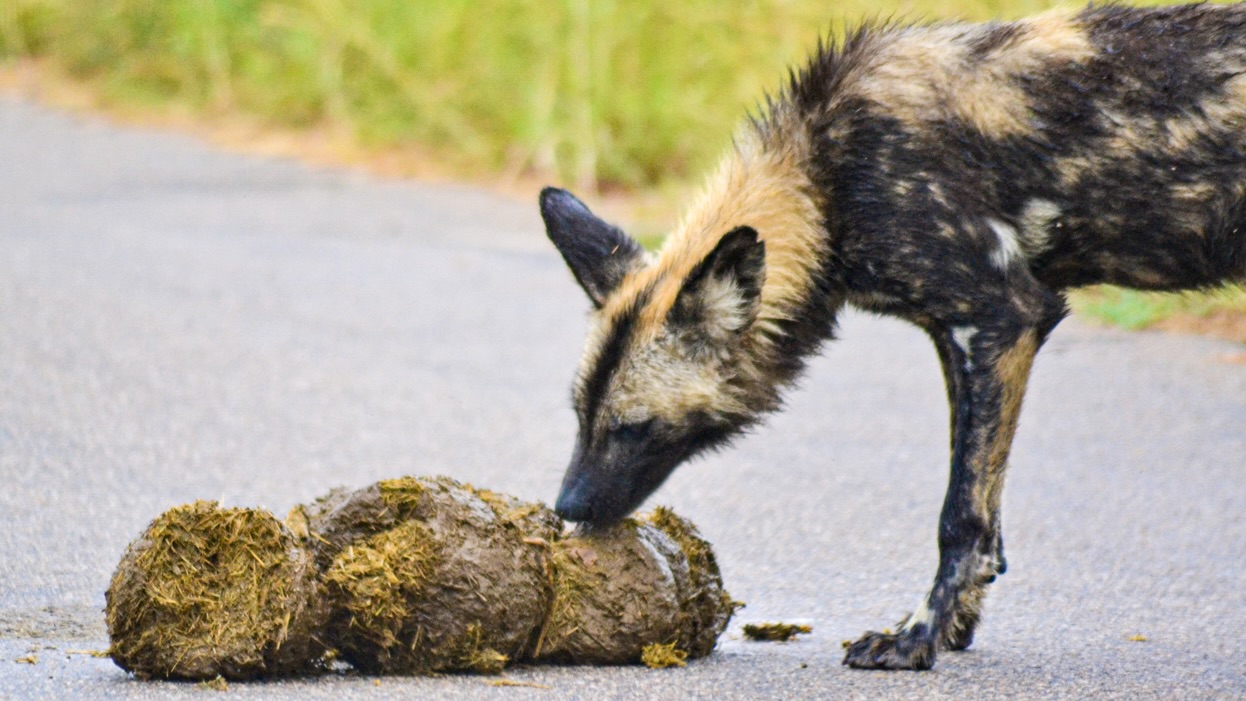
Video: That’s What Elephants Do After They Eat



